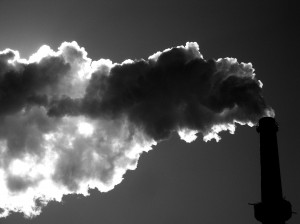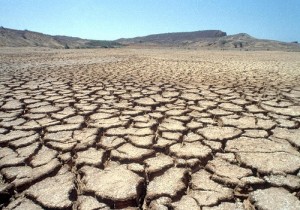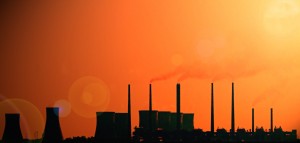121 item(s) were returned.
President
Kadak Associates, Inc.
There is an inconvenient and uncomfortable truth that nuclear energy is a significant non-CO2 source of electrical power in the U.S. Despite the dramatic expansion of solar and wind, these alternative forms of energy only provide 15% of non-CO2 emitting power nationwide. Nuclear energy on the other hand, provides 63% of all CO2-free sources. Often when a utility decides to shut down a nuclear plant it is replaced by natural gas. But replacing nuclear with “clean” natural gas only adds to the global CO2 load. In fact, each 1,000 megawatts of nuclear power replaced by natural gas adds 3.6 million… [more]
View InsightPresident
Micro-Utilities, Inc.
Attitudes towards climate change vary. Some have doubts, but even fish know better as they migrate north to cooler waters. Meanwhile, advocates agree that human influence is clear, but they are divided on how to address climate change, with too much focus on individual energy sources when in reality all non-carbon sources of energy have major problems. The divisions amongst advocates can undermine national energy policies and render U.S. policymakers ineffective. But most importantly, divisions amongst advocates rallying for an ‘all-solar,’ ‘all-nuclear,’ or ‘all-anything’ energy system ignore large problems facing a carbon-free future and risk climate change failure. There are… [more]
View InsightMember
U.S. House of Representatives
Climate change is a threat to our environment and our economy, and we cannot afford the risk of inaction. With our free market economy, the best solution is a simple, transparent tax on carbon that unleashes the power of the market and enables America to lead the way toward a new, clean energy economy. Importantly, a carbon tax produces revenues that can be used to help American businesses and families. But there are many options for how to use these revenues. Critics of carbon taxes frequently cite slower economic growth, increasing taxes on the poor, and hurting coal workers as… [more]
View InsightCo-Executive Director
The Institute for Carbon Removal Law and Policy, American University
The focus of the United Nations Framework Convention on Climate Change (UNFCCC) originally was the reduction of greenhouse gas emissions, as well as emissions associated with land-use change and forestry. However, by the 2000s scientists and policymakers realized that emissions targets were too low to avoid serious negative impacts, necessitating the development of adaptation responses as a complement to mitigation. In the past few years, it has become clear that historical emissions have “locked in” a certain level of climatic change, making some serious impacts unavoidable. Moreover, the feckless response of the world in arresting emissions makes even graver unavoidable… [more]
View InsightLead Senior Economist
Environmental Defense Fund
What determines the cost of a ton of coal? Is OPEC an oligopoly? Should we subsidize low-carbon energy or tax fossil fuels? Do Prius owners drive more? These are among the questions I cover in my Economics of Energy class. I’ve taught this class at Columbia University’s School of International and Public Affairs for the past five years. I hope to receive your feedback on how to improve this course. The course has two goals: to provide a set of tools to approach these and many other fundamental questions in energy economics, and to do so in plain English. Last… [more]
View InsightExecutive Director
Environmental and Energy Study Institute
According to the EPA, its proposed Clean Power Plan (CPP) would lead to a 30 percent cut in carbon emissions from the power sector by 2030, compared to 2005 levels. The CPP sets a customized goal for each state, which takes into account its existing policies and the unique structure of its energy system. The current draft regulation gives states interim goals for 2020-29, and a final target for 2030. The EPA proposal offers a great deal of flexibility for states to choose how best to achieve these emissions reduction goals. The CPP suggests four “building blocks” that states can… [more]
View InsightAssistant Professor
American University
On February 10, the National Academy of Sciences (NAS) released two major new reports on climate engineering (or “geoengineering”). The reports set out to summarize the scientific basis for what the authors chose to call “climate intervention,” identify governance and ethical challenges, and chart a new research agenda. While the authors were careful to state that climate intervention is no substitute for reduction in carbon dioxide emissions, the reports indicate support for further investigation into large-scale technological responses. The paired studies assess two specific groups of strategies: (1) carbon dioxide removal and (2) reflecting sunlight, or albedo modification. While the… [more]
View InsightThe David R. Atkinson Professor of Ecology & Environmental Biology
Cornell University
The EPA recently announced new regulations for methane emissions, taking an important first step in reducing the impact of this highly potent greenhouse gas (GHG). But the rule falls short, in part because EPA has systematically underestimated methane emissions from the oil and gas industry. Emissions from conventional natural gas are likely to be at least 2- to 3-fold greater than the EPA estimates, according to several recent studies. Recent literature also suggests emissions from shale gas may be twice as much greater still, based on an observed large increase in methane in the atmosphere over recent years, with the… [more]
View InsightPrincipal
Perelman Group
Jesse Jenkins (MIT) and Matthew Stepp (Center for Clean Energy Innovation) are among a number of policy analysts who have called for a “tax and invest” strategy to combat global warming. That is: A modest tax on carbon emissions would be invested in government research, development, and innovation-promotion programs to commercialize new alternative energy technology. But in a recent article I have argued there are at least four reasons to question whether typical government technology programs would be as cost-effective an investment as Jenkins and others claim: 1. The government role in innovation is neither necessary nor sufficient. Of the… [more]
View InsightOn December 3rd, 2014, OurEnergyPolicy.org hosted “Abundance or Scarcity? Re-examining U.S. Oil & Gas Policy,” a panel event at the Capitol Visitor Center in Washington, DC. The panel discussed how recent growth in domestic oil and gas production is transforming the U.S. energy sector and challenging the paradigm of energy scarcity that has underpinned federal policy for the last 40 years. Topics covered include policy issues related to exports, finance, climate change, infrastructure, natural gas as a transportation fuel and politically viable energy legislation. Find the full video below and the transcript here. Introduction: Bill Squadron, President, OurEnergyPolicy.org Opening remarks:… [more]
View Insight







